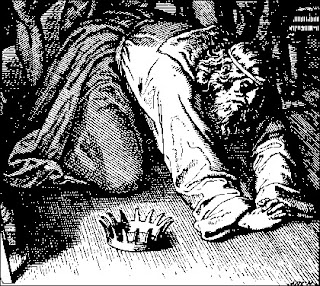 |
| Image: Pixabay |
TO CHEW ON: “… and the children of Judah prevailed, because they relied on the LORD God of their father.” 2 Chronicles 13:18
“O God, how long will the adversary reproach?
Will the enemy blaspheme Your name forever?” Psalm 74:10
Three things come together for me in today’s readings:
1. In the recitation of good and bad kings from 2 Chronicles, what stands out is that all the bad kings were guilty of occultism, idolatry, and seeking to do things on their own without God. God’s blessing flowed again when godly kings destroyed these things and returned to true worship.
2. In the psalms reading, psalmist Asaph’s pleading with God (to again make His name famous, to make His cause prevail, to restore sincere worship and purity to the land) resonates. It’s how I would pray for my own land and people in the 21st century.
3. I watched a video about community transformation last night. In it the filmmakers tell the story of several communities (one in Mexico, one in Guatemala, and one in California) that experienced community-wide spiritual revival in the 1990s. It happened when the church and concerned pastors became modern-day Asaphs and pleaded for their cities, with prayer and fasting.
When God revealed to them the occultic roots of their community’s enslavement to the drug cartels (Mexico), poverty, drunkenness, and abuse (Guatemala), and addiction (California) they confronted and took authority over dark forces with, again, prayer and fasting.
If we are burdened for our land and community like Asaph was, let’s follow the example of the Christians of the 1990s and contend (with prayer, fasting, church unity etc.) for another transformation!
PRAYER: Dear Father, I believe the kind of turnaround You brought to Judah and Israel under godly kings, and the transformation witnessed in the 1990s is possible today. Help me to contend for it in my country and town. Amen.
PSALM TO PRAY: Psalm 74
MORE: Transformations (the documentary film)
*********
Unless otherwise noted all Scripture quotations are taken from the New King James Version®. Copyright © 1982 by Thomas Nelson, Inc. Used by permission. All rights reserved.
Thanks for reading! This year we are using The Bible Project "Timeless Reading Plan" to read through the Bible in 2018. If you'd like to read along in your own Bible, you can download a pdf of the reading plan HERE.














